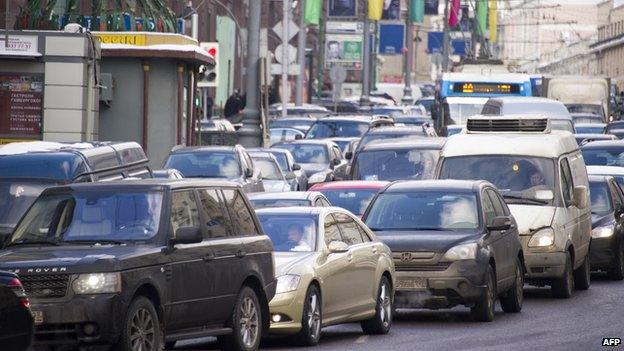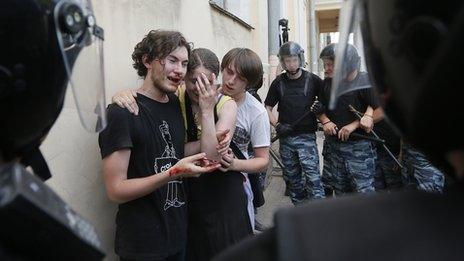Russia says drivers must not have 'sex disorders'
- Published

Moscow street: Various mental "disorders" are seen as a cause of road accidents
Russia has listed transsexual and transgender people among those who will no longer qualify for driving licences.
Fetishism, exhibitionism and voyeurism are also included as "mental disorders" now barring people from driving.
The government says it is tightening medical controls for drivers because Russia has too many road accidents.
"Pathological" gambling and compulsive stealing are also on the list. Russian psychiatrists and human rights lawyers have condemned the move.
The announcement follows international complaints about Russian harassment of gay-rights activists.
In 2013 Russia made "promoting non-traditional lifestyles" illegal.
Valery Evtushenko at the Russian Psychiatric Association voiced concern about the driving restrictions, speaking to the BBC Russian Service. He said some people would avoid seeking psychiatric help, fearing a driving ban.
The Association of Russian Lawyers for Human Rights called the new law "discriminatory". It said it would demand clarifications from the Russian Constitutional Court and seek support from international human rights organisations.
But the Professional Drivers Union supported the move. "We have too many deaths on the road, and I believe toughening medical requirements for applicants is fully justified," said the union's head Alexander Kotov.
However, he said the requirements should not be so strict for non-professional drivers.
Mikhail Strakhov, a Russian psychiatric expert, told BBC Russian that the definition of "personality disorders" was too vague and some disorders would not affect a person's ability to drive a car safely.
- Published16 December 2014

- Published17 January 2014

- Published8 December 2014
